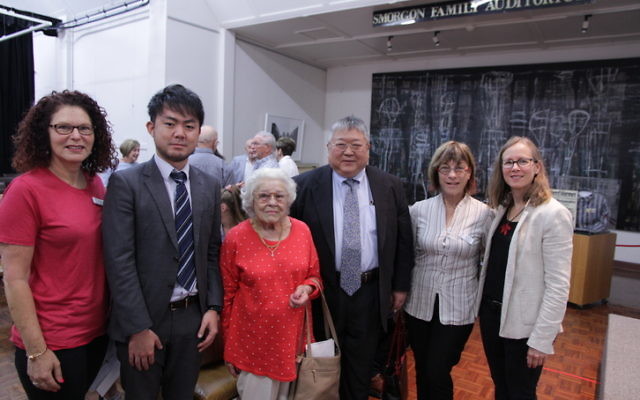Survivor’s tribute to Japanese diplomats
A Jewish woman sheltered by two senior Japanese consular officials in Berlin during World War II has recounted their bravery at the Jewish Holocaust Centre in Melbourne.

A JEWISH woman sheltered by two senior Japanese consular officials in Berlin during World War II has recounted their bravery.
At the Jewish Holocaust Centre (JHC) last Sunday, Melbourne great-grandmother Hannelore Hauser, 87, recalled how Dr Jiro Nezawa and Dr Kazuhiko Asai hid her and her mother Margarete Brummund for the entire war.
Brummund, living in a large Berlin apartment in 1939, responded to an advertisement from the Manchurian consul looking for lodgings for their trade commissioner.
Japan had invaded Manchuria in 1931 and perpetrated atrocities on Manchurians until the end of its occupation in 1945. But individuals such as Nezawa and Asai, although representing the might of Tokyo abroad, were a light in the darkness.
Nezawa moved in and befriended Brummund and her daughter. When he saw the perils of Jews living in Nazi Germany, he began assisting them.
Eventually he took over the apartment as the property of the Manchurian consul, offering the pair diplomatic immunity.
“Apparently Nezawa had no knowledge about Jews, but he quickly learned about the danger they were in,” recalled Hauser.
She shared memories of the diplomat arranging food and other essentials for the women to be brought directly to the apartment, so they would not have to risk arrest by venturing out to redeem ration cards from Christian charities.
Nezawa also helped Hauser, who was a child and a teen during the war, with home schooling, and ordered in new shoes to replace her threadbare ones.
When he was recalled to Japan, Nezawa’s successor Asai honoured the agreement to protect the women. After the war, Hauser emigrated to Australia.
JHC curator Jayne Josem said Hauser’s oral testimonies inspired her to invite the elderly survivor to pay tribute to her rescuers and was able to trace Asai’s daughter Nachiko Yokota to Canada.
“She told me her father was highly principled and understood racial persecution as a result of having married a German woman in the 1930s,” Josem related.
Melbourne’s deputy Japanese consul-general Yoshimitsu Kawata read a message from consul-general Kazuyoshi Matsunaga: “We appreciate that Hannelore Hauser has told our story … it reminds us of our shared humanity.”
PETER KOHN

comments